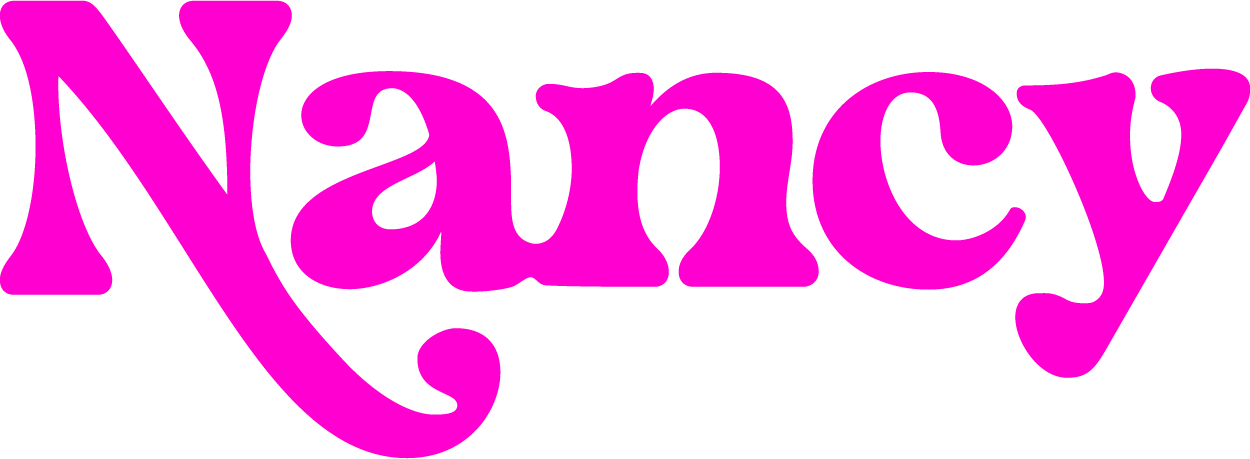Let's talk about something we don't discuss enough, self-love languages. We've all heard about the five love languages for relationships, but what about the ways we show love to ourselves? Our bodies are constantly communicating with us, each in its own unique dialect, and learning to understand these signals is perhaps the most intimate relationship we'll ever navigate.
Think about it, you wouldn't expect your partner to read your mind, so why do we expect to intuitively understand what our bodies need without taking time to listen? The truth is, self-love isn't one-size-fits-all, and discovering your personal self-love language can transform how you care for yourself.
What Are Self-Love Languages?
Just as relationship therapist Dr. Gary Chapman identified five primary ways people express love in relationships, our bodies have their own languages of self-care and nurturing. Self-love languages are the specific ways your body and mind respond most positively to self-care practices.
Dr. Kristin Neff, a pioneering researcher in self-compassion, explains that "self-compassion involves treating yourself with the same kindness, concern, and support you'd show to a good friend" (Neff, 2011). When we understand our self-love language, we can practice this compassion in ways that truly resonate with our unique needs.
The Five Self-Love Languages
1. Physical Self-Care
Some bodies speak loudest through physical sensation. If your self-love language is physical care, you might find that your emotional well-being is closely tied to how you're treating your body.
Signs this might be your primary self-love language:
- You feel renewed after a good workout
- Skincare routines feel therapeutic rather than chore-like
- You notice mood dips when you're not getting enough sleep
- Physical touch (like massage or even hugging yourself) brings immediate comfort
If this resonates with you, prioritizing regular movement, restful sleep, nourishing food, and physical touch might be your path to feeling most loved by yourself. Remember, this isn't about punishing exercise or restrictive eating, but joyful movement and nourishment that makes your body feel good.
2. Emotional Expression
For some of us, emotions need acknowledgment more than anything else. If emotional expression is your self-love language, bottling up feelings probably leaves you feeling disconnected from yourself.
Signs this might be your primary self-love language:
- You feel lighter after a good cry
- Journaling brings clarity and relief
- Talking through your feelings (even to yourself) helps process them
- Creative outlets like art or music feel necessary for your well-being
Emotional expressers need regular outlets and permission to feel the full spectrum of emotions without judgment. As researcher Brené Brown notes, "We cannot selectively numb emotions. When we numb the painful emotions, we also numb the positive emotions" (Brown, 2012).
3. Mental Stimulation
Is your mind constantly hungry for new information? If mental stimulation is your self-love language, caring for yourself includes feeding your intellectual curiosity.
Signs this might be your primary self-love language:
- You feel energized after learning something new
- Problem-solving brings satisfaction
- Boredom affects your mood more than physical discomfort
- Reading or educational content feels like a treat, not a task
If this is you, scheduling regular learning opportunities, challenging mental exercises, and stimulating conversations might be essential to your well-being. Your brain craves growth just as much as your body needs movement!
4. Spiritual Connection
For many, self-love speaks through spiritual practices that connect us to something larger than ourselves.
Signs this might be your primary self-love language:
- Meditation or prayer centers you more than other practices
- Nature immersion feels deeply restorative
- You seek meaning and purpose in daily experiences
- Rituals and traditions bring comfort and stability
Spiritual connection doesn't necessarily mean religious practice, it's about whatever helps you feel connected to the universe, humanity, or your deeper self. This might be formal practices or simply moments of awe while stargazing.
5. Environmental Harmony
Never underestimate how powerfully our surroundings affect our well-being. If environmental harmony is your self-love language, your space directly impacts your internal state.
Signs this might be your primary self-love language:
- Clutter causes noticeable anxiety
- Creating beauty in your space brings joy
- You're sensitive to lighting, scents, and textures
- Rearranging or refreshing your environment lifts your mood
Creating spaces that reflect and support your inner world might be your most important self-care practice. As Marie Kondo famously suggests, surrounding yourself with things that "spark joy" can transform your relationship with yourself and your home (Kondo, 2014).
Finding Your Primary Self-Love Language
Just like relationship love languages, most of us respond to all five self-love languages to some degree, but typically have one or two primary dialects. Here's how to discover yours:
Notice What Depletes You
Often, our self-love language becomes obvious when we're lacking in that area. Pay attention to what makes you feel most "off" when it's missing. Is it lack of movement? Emotional suppression? Mental boredom? Spiritual disconnection? A chaotic environment?
Track Your Mood Boosters
For a week, note activities that genuinely lift your spirits. Not what you think should make you feel better, but what actually does. Patterns will emerge that point to your primary self-love language.
Consider Your Stress Response
How do you instinctively soothe yourself when stressed? Do you reach for a shower or workout? Call a friend to process feelings? Dive into a book? Meditate? Clean your space? These natural inclinations often reveal your self-love language.
Try the Elimination Test
Temporarily remove one type of self-care and notice the impact. For example, skip your usual physical practices for a few days, then your emotional outlets, and so on. Your strongest reaction will often point to your primary language.
Mixed Languages and Changing Needs
It's important to recognize that many of us have blended self-love languages, and our needs can shift with different life phases. During high-stress periods, your environmental needs might speak louder, while during emotional transitions, expression might take priority.
The key is developing fluency in all five languages while honoring your primary dialects. Like any language, practice makes perfect, and the more attuned you become to your body's communications, the more naturally you'll respond.
Self-Love Languages in Practice
Let's look at how understanding your self-love language might transform your daily routines:
Morning Rituals
- Physical: Morning stretching, nutritious breakfast, cold shower
- Emotional: Journaling, affirmations, checking in with feelings
- Mental: Reading news, podcast listening, language learning
- Spiritual: Meditation, gratitude practice, intention setting
- Environmental: Making your bed, opening curtains, lighting a candle
Work Day Resets
- Physical: Desk stretches, hydration breaks, proper posture check
- Emotional: Breathing exercises, boundary setting, emotion naming
- Mental: Task variation, learning breaks, creative problem-solving
- Spiritual: Meaning reflection, purpose reminders, mindful moments
- Environmental: Desk clearing, plant watering, workspace refreshing
Evening Wind-Down
- Physical: Gentle movement, facial massage, relaxation techniques
- Emotional: Day reflection, talking with loved ones, emotional release
- Mental: Fiction reading, puzzles, planning tomorrow (then releasing it)
- Spiritual: Evening meditation, stargazing, reflection on the day's gifts
- Environmental: Light tidying, aromatherapy, comfort adjustments
FAQ: Self-Love Languages
Can my self-love language be different from my relationship love language?
Absolutely! Many people find their self-love language differs entirely from how they prefer to receive love from others. You might crave words of affirmation from partners but find physical self-care most nurturing for yourself.
How often should I reassess my self-love language?
Life transitions often shift our needs. Consider checking in with yourself during major changes like new jobs, relationships, moves, health changes, or whenever you feel a disconnect between your self-care practices and their effectiveness.
Can children have self-love languages?
While children might not articulate their self-love languages, they definitely show preferences for certain types of care. Helping children recognize what helps them feel better when upset is laying groundwork for lifelong self-understanding.
Is it selfish to prioritize my self-love language?
Quite the opposite! As the safety instructions on airplanes remind us, secure your own oxygen mask before assisting others. Understanding and honoring your needs enables you to show up more fully for everyone else in your life.
Wrapping Up
Understanding your body's unique self-love language isn't just pleasant, it's revolutionary. In a world that profits from our self-doubt and disconnection, choosing to listen deeply to your own needs is a radical act of self-respect.
Remember that fluency takes time. Be patient as you learn to interpret your body's signals and respond appropriately. Some days you'll misunderstand, and that's okay! The conversation between you and your body is lifelong, with plenty of time to develop mutual understanding.
Want to make your journey even more exciting? I've handpicked some amazing toys and goodies at Hello Nancy that'll add extra sparkle to your intimate moments.
Here's a little secret, use the code 'dirtytalk' for extra 10% off!
References
Brown, B. (2012). Daring greatly: How the courage to be vulnerable transforms the way we live, love, parent, and lead. Gotham Books.
Kondo, M. (2014). The life-changing magic of tidying up: The Japanese art of decluttering and organizing. Ten Speed Press.
Neff, K. (2011). Self-compassion: The proven power of being kind to yourself. William Morrow.







 Add 794.40؋ to get Free Gift
Add 794.40؋ to get Free Gift



